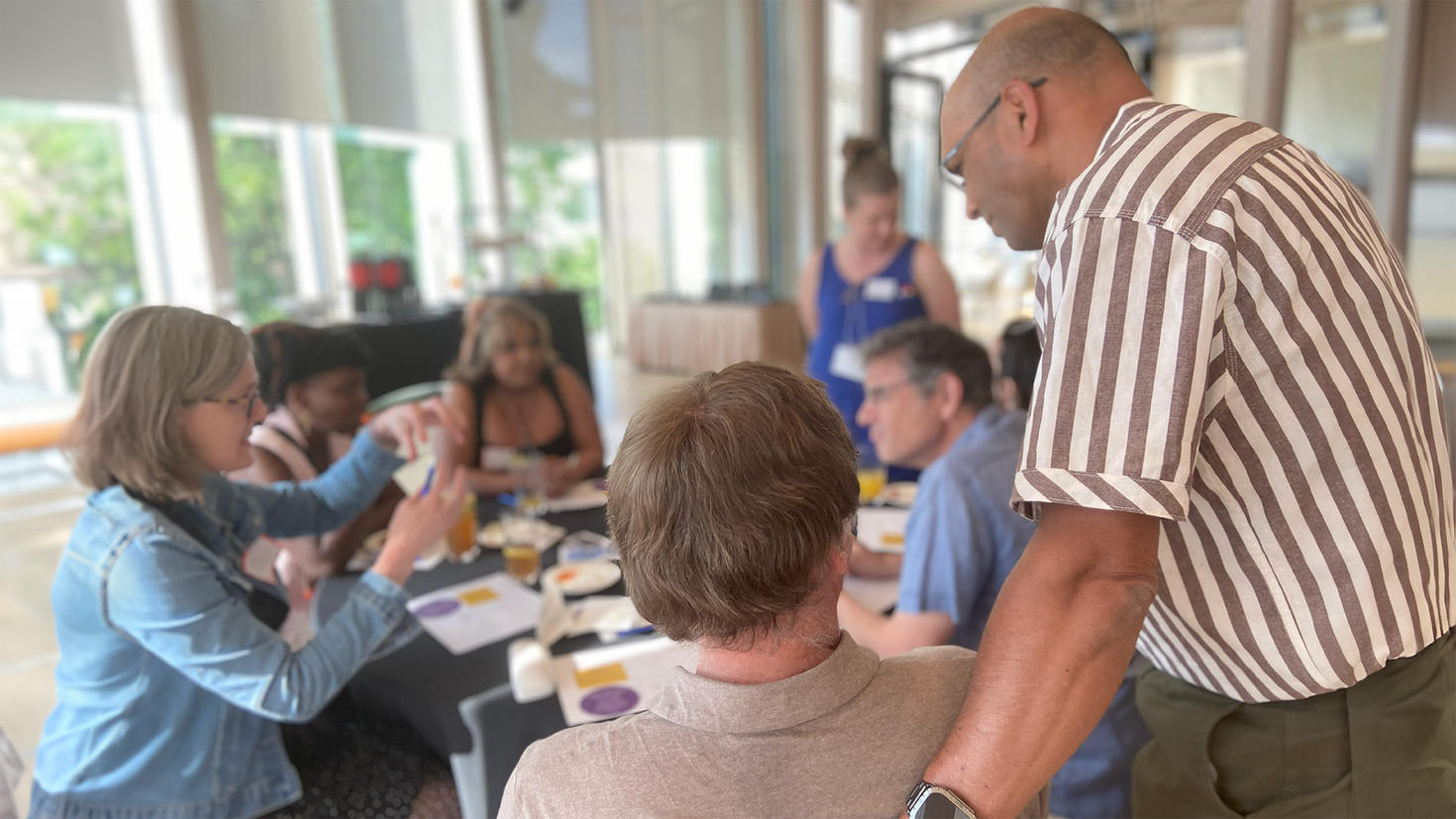It’s a worrisome trend: More than 50% of new French as a second-language teachers in Ontario have considered leaving the profession. So what might make a teacher think twice about quitting?
This is a key question driving Professor Stephanie Arnott’s work. She’s focused on ways to support FSL teachers and develop capacity to ensure French-language instruction in Canadian classrooms. With funding from the Ontario Ministry of Education, Arnott is leading the FSL Challenge Project, a new phase of research that builds on previous initiatives, including ReadyFSLand the FSL Teacher Education Project.
The FSL teacher shortage has been moving in the wrong direction for years, and Arnott’s research shows that retention starts during FSL teachers’ preparation in faculties of education. “Building vibrant and supportive FSL communities with faculties of education and local school board representatives, including FSL teachers and administrators,” she says, “is the most effective way to foster retention and recruit more FSL teachers to the profession.”
Collaboration and community building
In the spring and summer, Arnott and fellow research team members Ryan Furlong (MA ’24) and Adam Kaszuba (PhD ’25) hosted two engaging and productive working sessions in Ottawa. Participants included current FSL teachers who had served as seconded professors or associate teachers and key FSL administrators from the Ottawa-Carleton District and Ottawa Catholic school boards, first- and second-year FSL teacher education candidates, and senior members of the Initial Teacher Education (ITE) team at the University of Ottawa’s Faculty of Education. The goal was to develop a shared vision of the intersection between FSL teacher learning and retention and turn ideas into tangible actions to create supportive FSL communities.
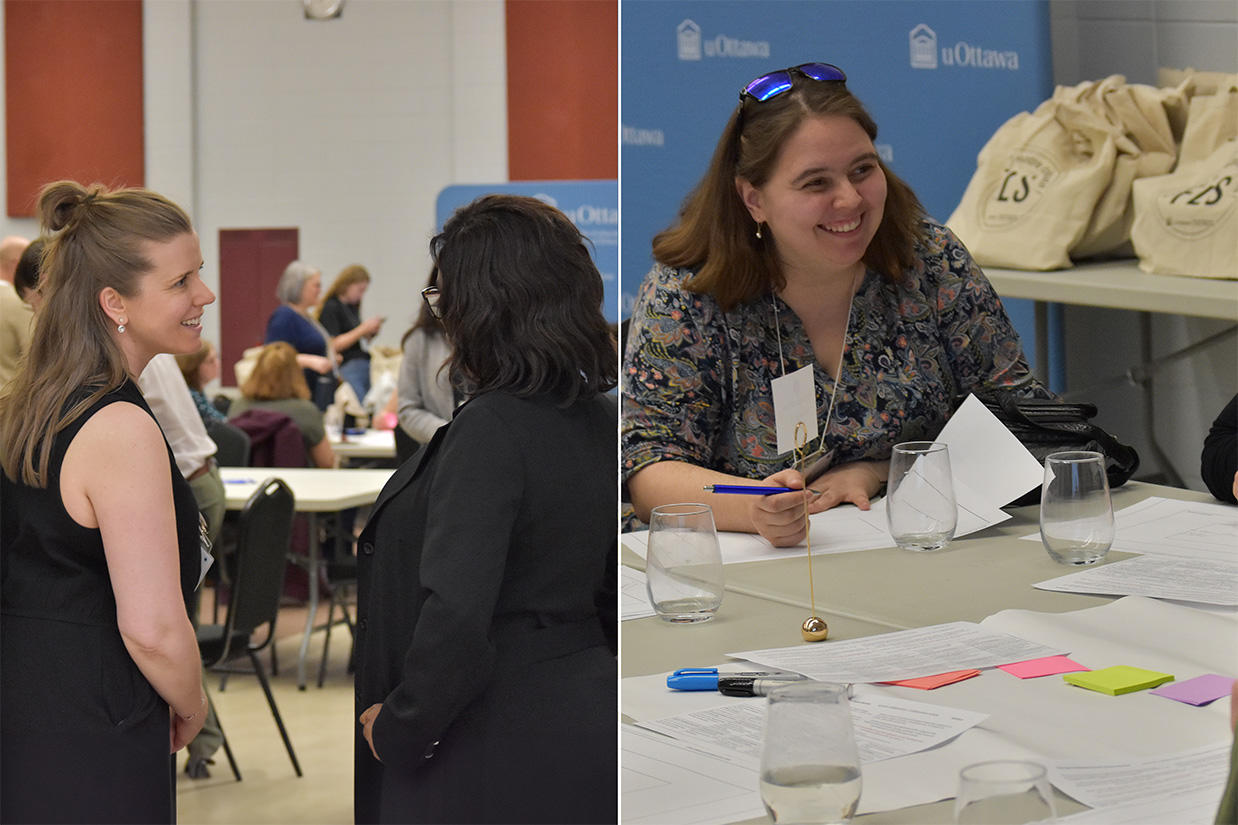
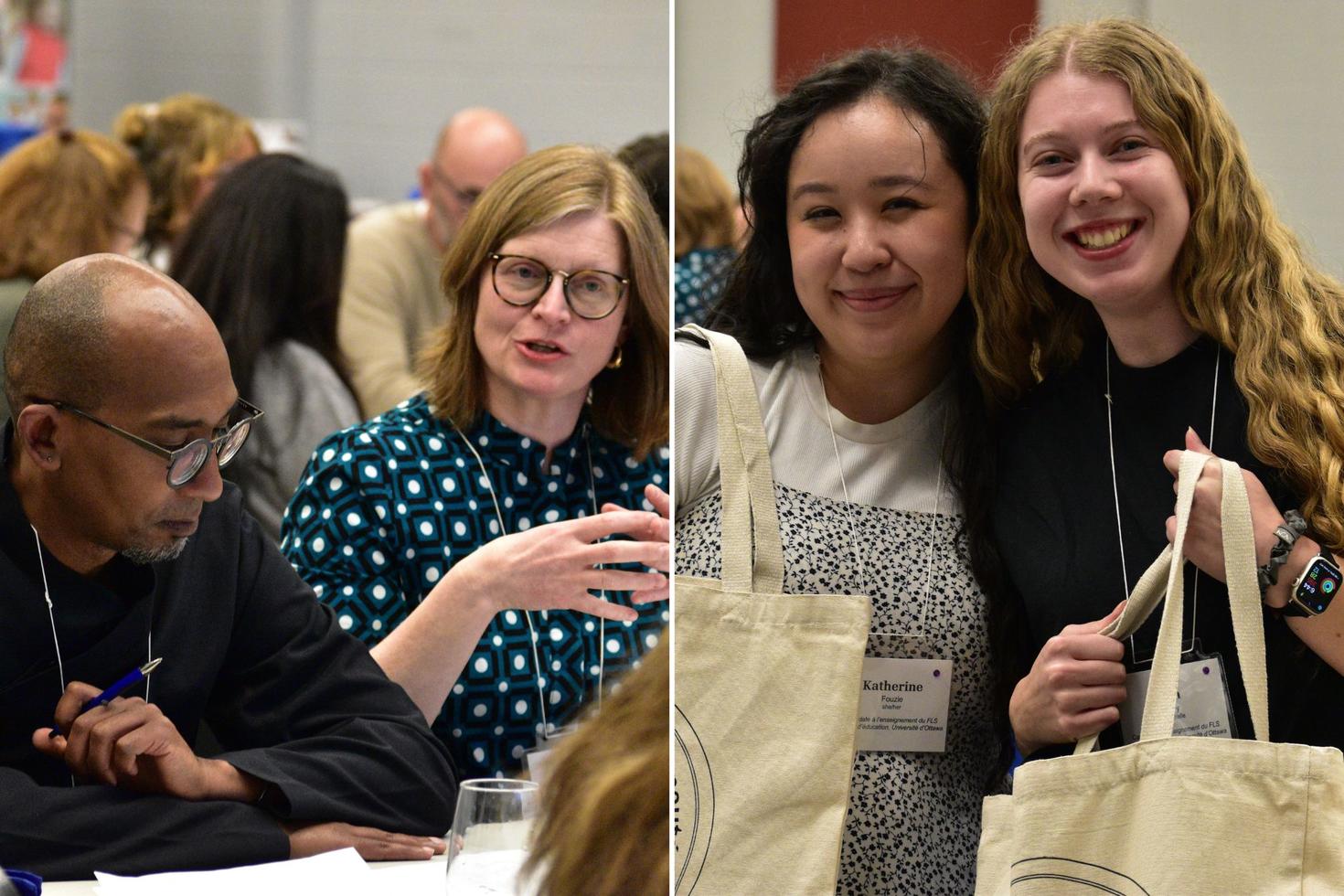
Facilitating opportunities for community partners and research collaborators to come together, share difficulties and find common ground in their understanding of the FSL teacher education system is a core objective of the FSL Challenge Project. The sessions supported these goals by providing space for both informal networking over refreshments and formal collaboration through structured learning activities.
What emerged from the conversations? According to Arnott, there’s a collective passion for FSL teacher learning and retention at the University of Ottawa.
“An openness to learning about the various roles that community members fulfil in our ITE program also stood out as a common value, as did a consensus about prioritizing retention from the moment future FSL teachers arrive in our program,” she says.
For Kasjuba, the sessions were an opportunity to broaden his perspective. "Working with Stephanie, Ryan, and all of the event attendees has opened my eyes to a different way that we can address challenges like FSL teacher retention,” he says.
“At the heart of this approach is, of course, community. Stephanie has done an incredible job at creating a relaxed and inviting atmosphere at these events. Thanks to this initiative, I’ve been able to make connections with people whom I otherwise would have unlikely had the chance to interact with."
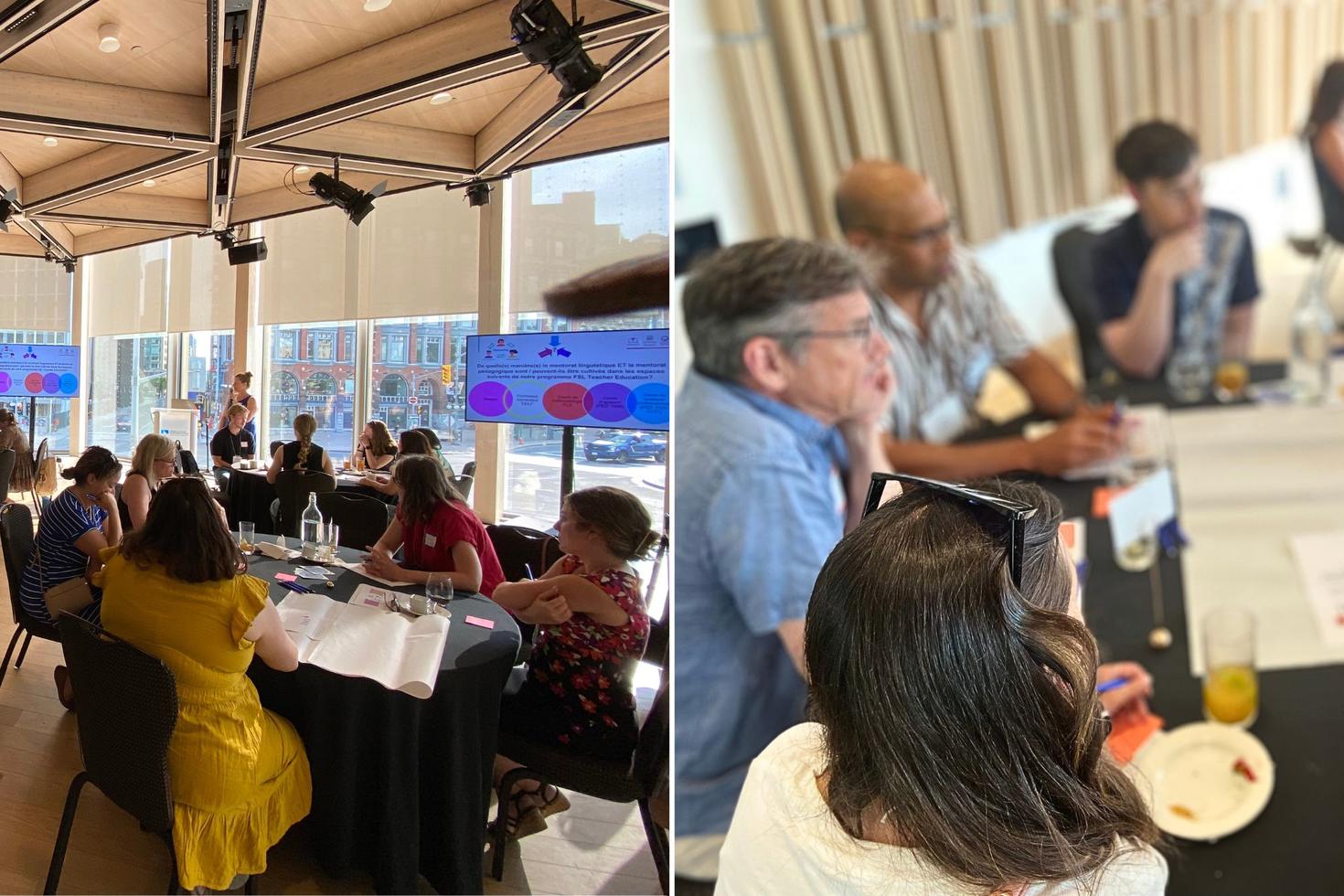
Practicum: A vital element
An analysis of the formal learning activities held during both sessions identified the practicum as the most influential factor in FSL teacher education learning and retention. Given this, initiatives to support FSL teacher candidates should prioritize enhancing the practicum experience and related supports, including mentoring, co-planning and co-teaching.
A synthesis of the “working” vision that emerged from these sessions can be found in the infographic Navigating the Rising Tide Together. It’s an evidence-based visual guide for FSL community members and other FSL partners to gain a more in-depth understanding of the current context and respond to the guiding question “How can we strengthen FSL teacher learning and retention?”
Among the “anchors” that support the learning and long-term success of FSL teachers are mentorship and relationships.
“In the case of our FSL community, we are currently navigating the expansion of a shared vision about how mentorship can support three key topics that emerged from the discussions: DELF test corrector training during FSL ITE, French language course requirements and French language proficiency testing,” says Arnott.
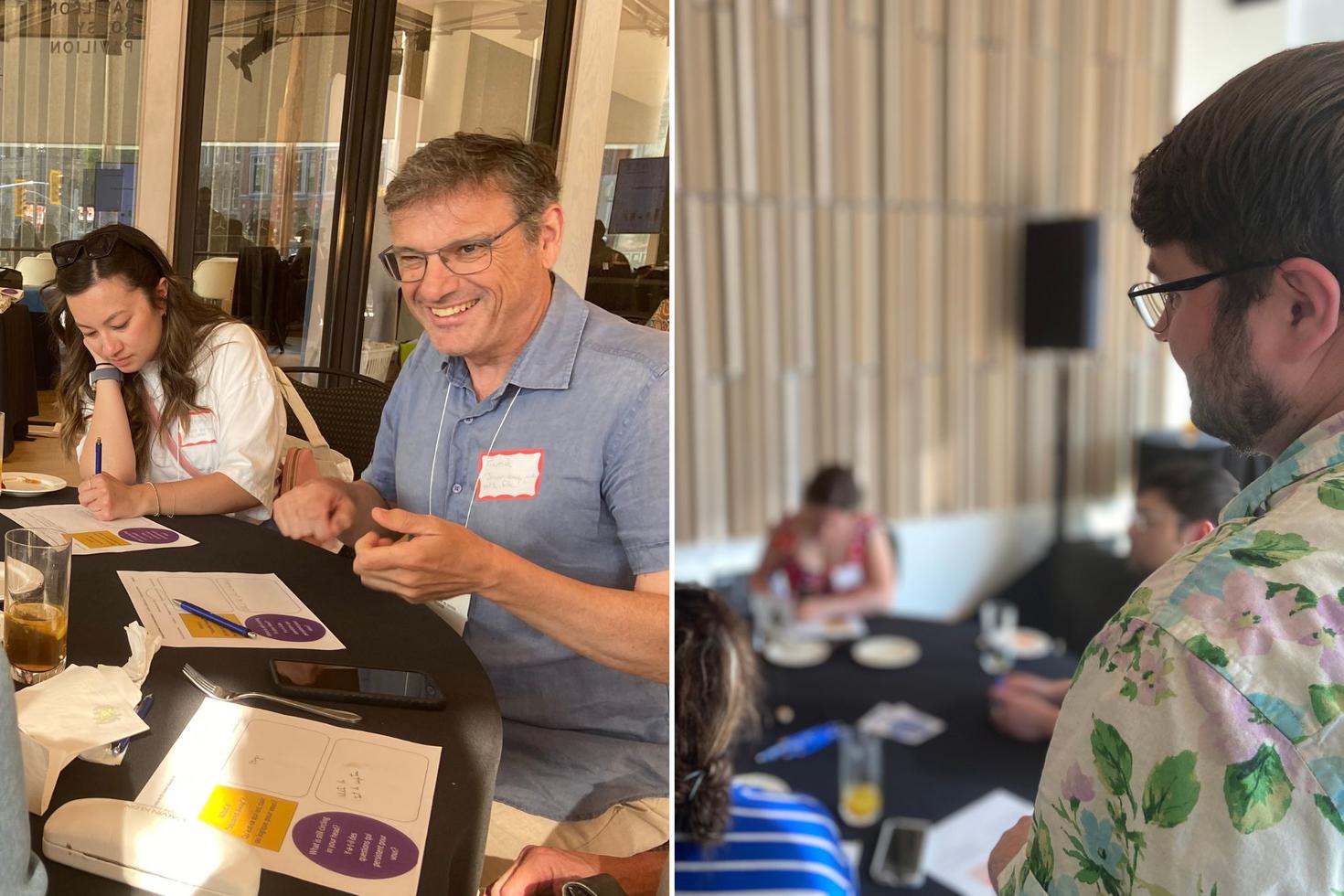
Building on the momentum
“Building our FSL teacher education community here at the University of Ottawa has been incredibly fulfilling for me as a professor in our Faculty of Education,” says Arnott.
“It's transformative — the power of relationship-building and collaborative inquiry on long-term retention of FSL teachers is undeniable. FSL is no longer an isolated program in our schools or faculties. Coming together like this connects folks with their passion for FSL and motivates our community to work together in the name of retention. Watching rich relationships develop first hand during these two events was a true privilege, and I hope to continue expanding this initiative for years to come,” she adds.
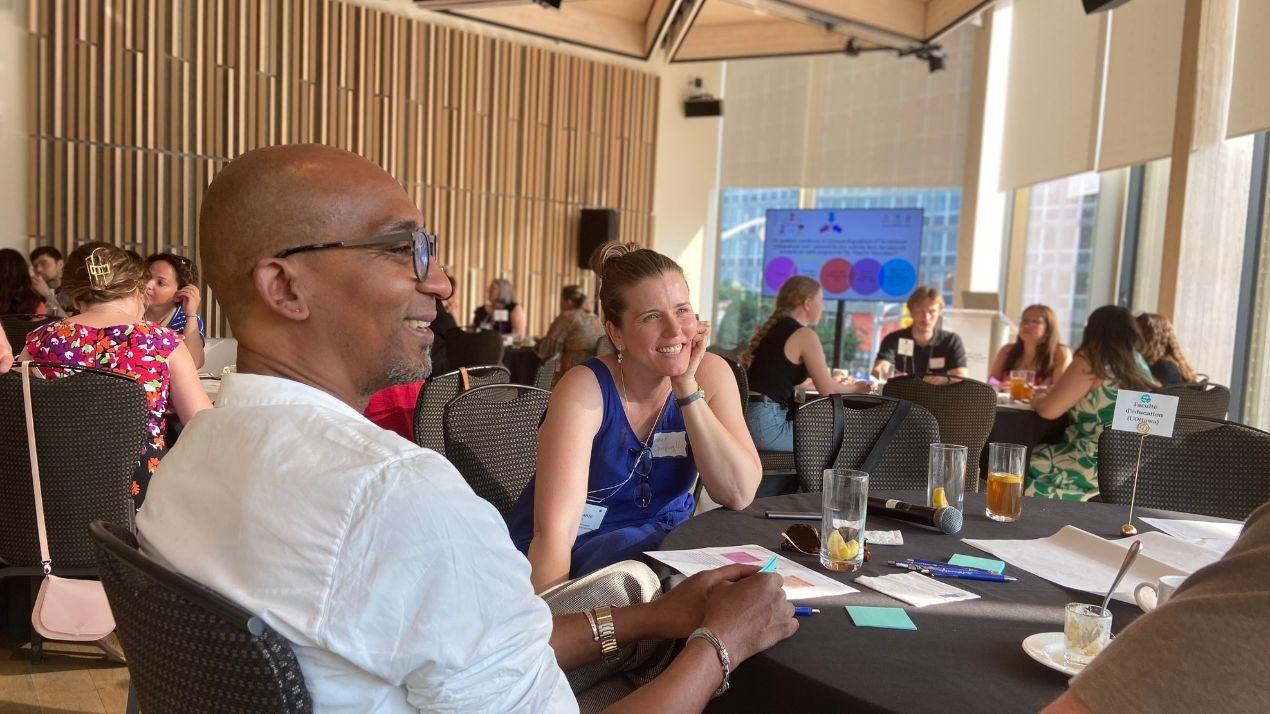
About Stephanie Arnott
Stephanie Arnott is an associate professor in the Faculty of Education, a member of the EducLang research group and a co-coordinator of the Second Language Teaching (SLT/ELS) program, run in partnership with the Official Languages and Bilingualism Institute (OLBI/ILOB). Her research focuses on second language education and FSL teacher recruitment and retention in Canada. In her piece Possibility, actuality, sustainability: Contemplating cultures of experimentation in Canadian French as a second language (FSL) teacher education (forthcoming, Canadian Modern Language Review), Arnott and co-authors show how the University of Ottawa’s Faculty of Education is responding to FSL teacher shortages.
